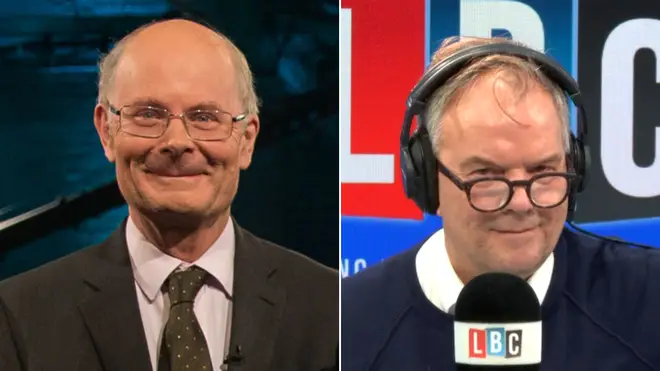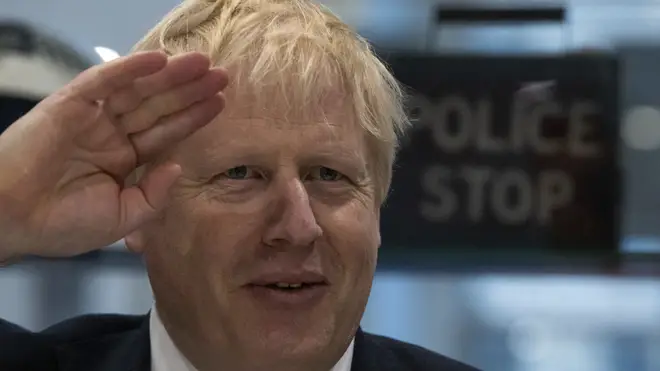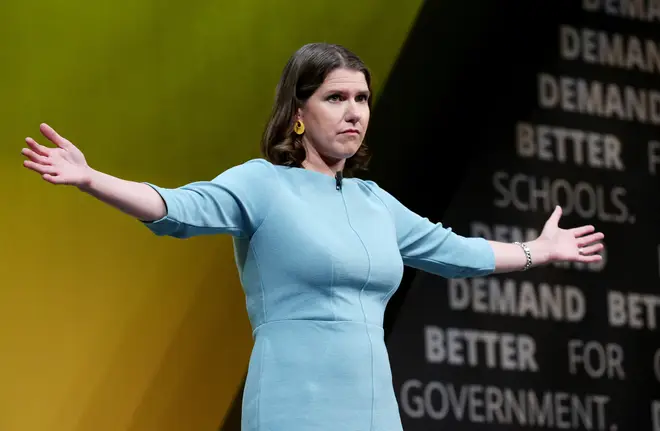
Ian Payne 4am - 7am
4 November 2019, 15:09
Pollsters believe the upcoming election could be one of the most difficult to predict. LBC asked the nation's leading elections expert Professor Sir John Curtice where December's General Election will be won and lost.
Speaking to Matt Frei on LBC, Sir John identified four key questions that will make the difference on 12th December.
1. How much will the Brexit Party hurt the Conservatives?
For every one Labour voter that switch to the Brexit Party, there are two Conservative voters who are still doing that journey, even though the Conservative Party have squeezed the Brexit Party vote over the last few weeks.
What nobody knows the answer to is what would Brexit Party voters have done if they didn't have the Brexit Party to vote for?
Given the origin of the Brexit Party vote, it is still highly unlikely that the net effect of the Brexit Party's standing is going to hurt Labour more than the Conservatives.

2. How successful will the Brexit Party be?
The seats that the Conservatives need to pick up from Labour are disproportionately in Leave-voting Britain. On average, they voted 55% for Leave.
In about half of them, Ukip did relatively well in 2015, so we could expect the Brexit Party to do relatively well.
But if the Brexit Party does do well in these seats, the initial expectation is that it's going to help Labour rather than hurt them in the sense that they are more likely to get the support of voters who otherwise vote Conservative.
There has been a poll in Workington - albeit with small numbers - where it suggests the net effect of the Brexit Party standing is zero, it's taking votes almost equally from both Conservative and Labour.
One thing that's important to remember: I did the research two years ago and it's been replicated since: in most seats where Labour won in the north of England and the Midlands and where there was a non-trivial Leave vote, most Labour voters voted Remain - around 60% of them.
People tend to mistake the character of the constituency for the character of the Labour vote.
We know that Labour's vote is predominantly a Remain vote and therefore the ability of the Brexit Party to damage it more than the Conservatives has to be limited.

3. Can Boris Johnson's Conservatives win pro-Leave northern seats?
In 2017, because the Conservative Party was gaining ground among Leave voters and losing amongst Remain voters, the Conservatives were doing very well in the most pro-Leave areas like Bishop Auckland and Workington.
In many of these, there was a net swing from Labour to Conservative. This is why they are marginal seats for the first time.
Boris Johnson's job is to recreate the coalition that Theresa May had in 2017.
If in these constituencies the Conservatives hang on to what they've got and Labour lose ground to the Liberal Democrats, the Conservatives could win the seat without picking up any new Labour voters at all.

4. Where will the Liberal Democrats do well?
Half of the seats that the Liberal Democrats are closest to the Tories are in Remain seats - Richmond Park, St Albans - and frankly we'd expect the Liberal Democrats to be favourites to pick up those seats.
But in other places like north Devon and north Cornwall, they have a long-standing liberal tradition but voted Leave. How will they do in these?
Quite a lot of their appeal was "London is a long way away, it doesn't care about us, doesn't understand us, we the Liberal Democrats will stand up for your interests". That is a sentiment in the Celtic fringe which might help them pick up Leave voters. But that is a challenge.
One of the dramatic features of the European Parliament elections is that the Liberal Democrat, who have historically been very weak in London and stronger in the Celtic fringe, had a complete reversal.
One of the biggest unknowns in this election is where will the Liberal Democrats do well?
If they are doing well in London, bear in mind that actually it's the Labour Party that are vulnerable. The Conservatives don't have much to defend in the capital.